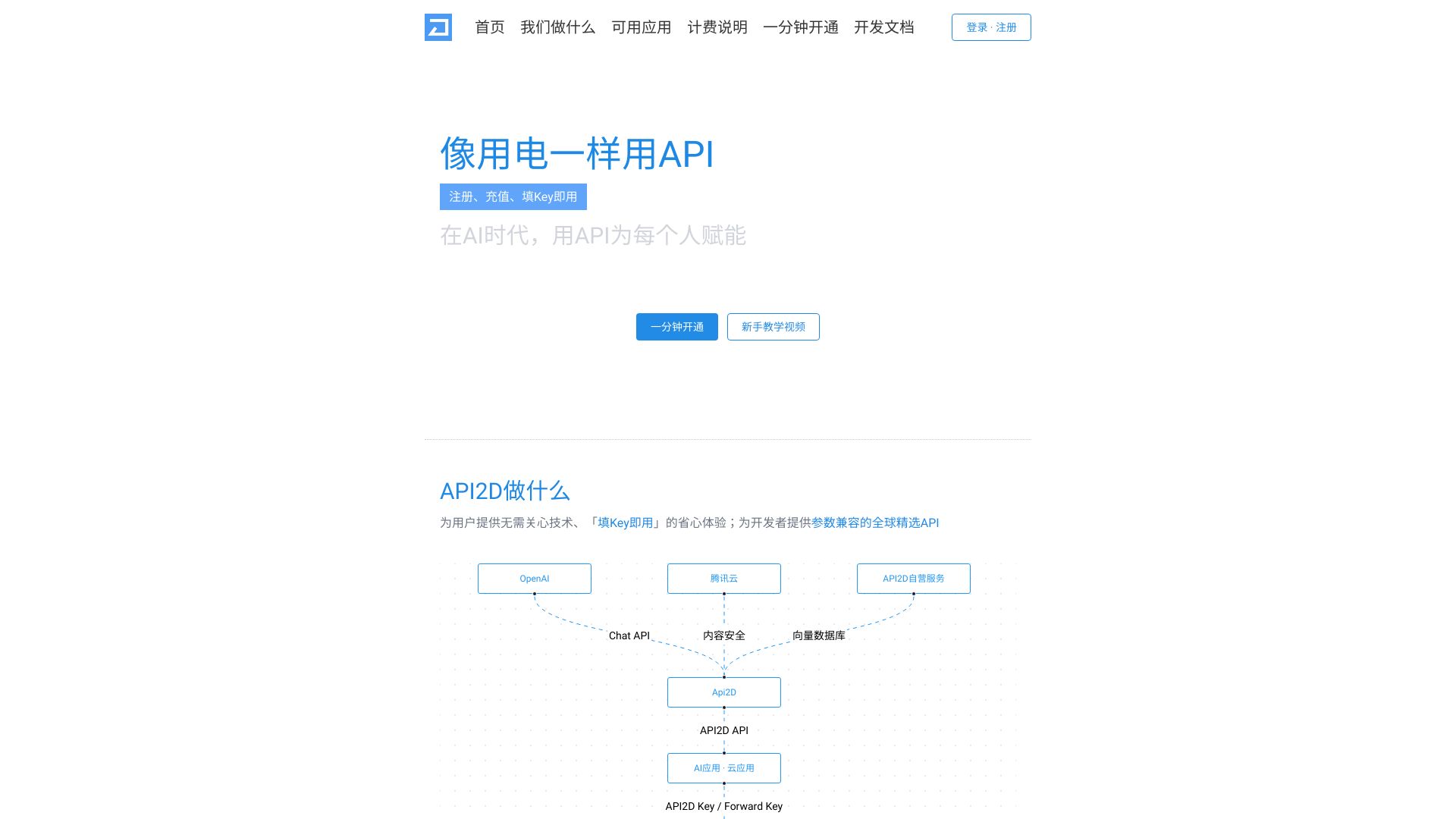
API2D
API2D: Unlocking the Power of AI for Your Applications API2D is an innovative OpenAI API designed to seamlessly integrate with third-party applications, enabling a wide range of AI tasks. Whether you're looking to enhance natural language processing (NLP), machine learning (ML), conversational interfaces, content generation, or translation capabilities, API2D has you covered. Key Features of API2D: With API2D, you can enhance user experience, streamline operations, and drive engagement through powerful AI functionalities. Explore the endless possibilities of AI integration with API2D today!
Category:code-it ai-api-design
Create At:2024-12-14
API2D AI Project Details
What is API2D?
API2D is an OpenAI API that provides access to third-party applications for artificial intelligence tasks such as natural language processing, machine learning, intelligent conversation, text generation, and language translation.
How to use API2D?
To use API2D, simply sign up for an account on our website and obtain an API key. Then, you can start integrating the API with your applications and make requests for the desired AI task.
API2D's Core Features
- Extensive support for natural language processing
- Advanced machine learning algorithms
- Intelligent conversation models
- Text generation capabilities
- Language translation services
API2D's Use Cases
API2D can be used in various applications such as:
- Chatbots
- Virtual assistants
- Language translation tools
- Content generation platforms
- AI-powered customer support systems
FAQ from API2D
Can I use API2D for free?
Yes, API2D offers a free tier for users to explore its features.
Is API2D suitable for small businesses?
Absolutely! API2D is designed to be scalable and can cater to the needs of small businesses.
Is API2D easy to integrate with existing applications?
Yes, API2D is built with ease of integration in mind, making it user-friendly for developers.
What programming languages are supported by API2D?
API2D supports multiple programming languages, including Python, Java, and JavaScript.